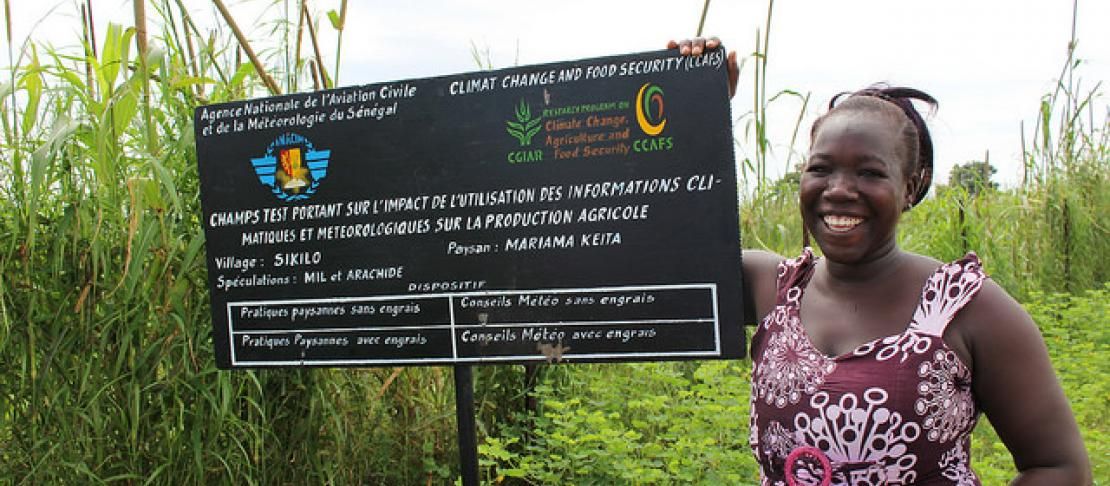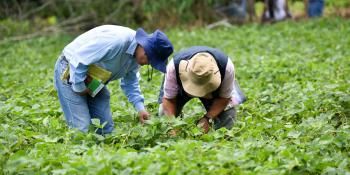4 core values for ethical research in the climate services community

New paper seeks to establish ground rules to avoid that a rapidly developing climate services community would inadvertently cause harm.
The CGIAR Research Program on Climate Change, Agriculture and Food Security (CCAFS) is part of a growing community that seeks to use climate information services to accomplish good. But what is the risk that the rapidly developing climate services community might inadvertently contribute to causing harm? What can be done to minimize those risks? These questions have led CCAFS to participate in an ongoing dialogue about climate services ethics.
Initiating the climate services ethics discussion
At the moment, there is no internationally recognized set of ethical principles or standards to ensure that climate services are designed and implemented in a way that maximizes the benefits to society, while minimizing the risk of causing harm. As a step toward developing such ethical principles and standards, the Climate Services Partnership (CSP) recently published a white paper, Toward an ethical framework for climate services. The white paper does not propose standards per se, but aims to catalyse a broader discussion within the climate services community on ethical principles and standards.
“The production and the use of climate information services pose a range of ethical quandaries that we haven’t – up to this point – had a lot of discussion about. The white paper is an early step in an open-ended process to foster that conversation and, hopefully, crystalize a set of principles that can help ensure climate services are deployed to the benefit of society as a whole,” said Cathy Vaughan, of the International Research Institute for Climate and Society. Cathy is part of the Climate Services Partnership Working Group on Climate Services Ethics.
CCAFS provided input and endorsed the white paper, along with the START Secretariat, the Red Cross/Red Crescent Climate Centre, and the Climate Knowledge Brokers group. A related paper will appear in the bulletin of the World Meteorological Organization later this month.
Four core values as a foundation
While agreeing on standards for good ethical practice will not be a trivial task, the authors propose that a few shared values and beliefs can lay the foundation for such standards.
The foundation starts with four core values for climate service providers: integrity, transparency, humility, and collaboration. Integrity includes honesty at all levels, including acknowledgement about the uncertainties inherent in the information provided. This honesty should translate into transparency of communication, including provider’s sources and methods. The authors describe humility as “not presenting information as more than it is, nor less than it is.” The final core value, collaboration, involves openness to involving a range of users in the design and production of services.
The proposed core beliefs lead into a series of “principles” that can guide the climate service community in shaping appropriate practice and products. These principles address issues including the central role of users’ needs, value systems and decision frameworks; a recognition of the varied and sometimes mixed impacts that use of climate services can have; accountability for products and practices; and an openness of service providers to scrutiny and comparison of their work. A final belief, “public data are a public good,” challenges the data policy of many national meteorological services.
Where do we go from here?
As climate services continue to develop, it seems inevitable that ethical mistakes will be made, and that ethical standards will be developed and formalized. Raising concerns and proposing ethical principles may reduce those mistakes.
The CCAFS network of researchers and partners working on rural climate services, have a great deal to contribute to the discussion. CCAFS plans to stay involved in the next steps of Working Group on Climate Services Ethics, and highlight particular issues that are important for climate services that target farmers in the developing world. For example, climate services for agriculture usually involves a range of institutions, in addition to national meteorological services. Principles and guidelines for “climate information providers” may need to be adapted to agricultural research and extension organizations, as they play roles in the translation, communication and use of climate information.
Read more:
Toward an ethical framework for climate services
James Hansen is a Research Scientist at the International Research Institute for Climate and Society (IRI) and a CCAFS Theme Leader.
Cathy Vaughan is a Senior Staff Associate at IRI and Program Manager for the Climate Services Partnership (CSP).



